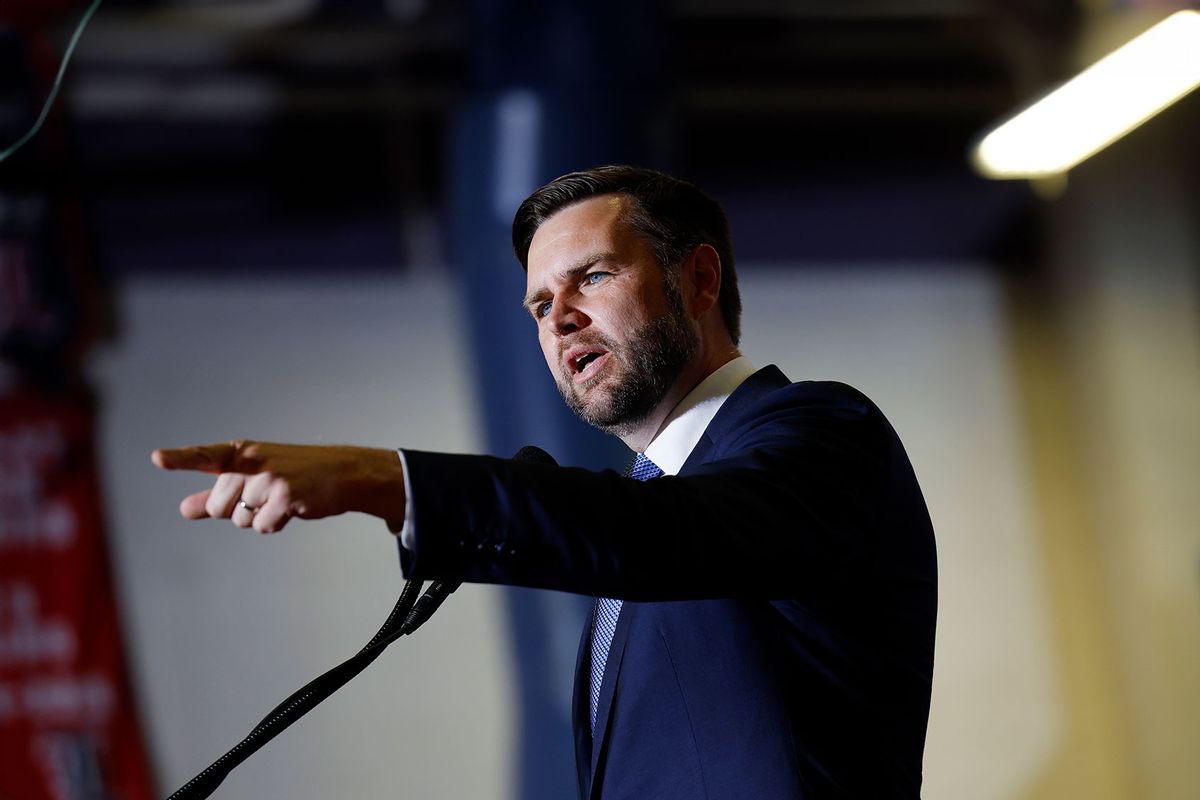Since the U.S. Department of Education opened in 1980, Republicans have wanted to take it apart. This year’s Republican platform is no different. It would cut financial aid benefits that help the neediest students, hobbling our nation’s economic future. Ohio Sen. JD Vance, in his educational ascent from the Rust Belt working class to vice-presidential candidate, should know this better than anyone. His unwillingness to say so is part of the inauthenticity that voters tell pollsters they find “weird” and out-of-touch.
Millions of Americans like Vance have lifted themselves out of hardship using federal education funds. I know this because I am one of them. As an education policy scholar, I know that Vance and I were lucky to be born in a country that makes such stories possible.
As described in his memoir, Hillbilly Elegy, Vance overcame a hardscrabble childhood and attended Ohio State University on the federally funded GI Bill, which provides grants for thousands of veterans, including not only Vance but his vice-presidential rival, Minnesota Gov. Tim Walz. Vance then received a partial scholarship from Yale Law School, likely supplemented by federal loans.
My own story was not so different. It involved a chronically unemployed single parent, a stopover in foster care, and lots of packing up and moving around the South. Like Vance, I made my way through fancy universities thanks to their financial generosity and that of federal taxpayers.
But the policies that enabled journies like ours are fragile. The U.S. Department of Education that Republicans want to eliminate is in fact an economic engine. More than half of its budget goes toward Pell grants and federal loans for students who cannot afford college. Access to these dollars depends only on students’ financial need, not on their test scores or creditworthiness.
By calling universities “the enemy” for teaching racial inclusivity instead of celebrating their power to change lives, Vance undermines his own story.
How might a Trump-Vance administration change that? The Heritage Foundation’s Project 2025 presidential blueprint, spearheaded by a friend of Vance, lays out a plan. It would privatize the student loan market and get rid of the interest holidays and rate caps that make borrowing viable for low-income students. It would also end loan forgiveness for public service, a step that could even imperil the GI Bill that helped both vice presidential candidates. Project 2025 cites cost savings, explaining that “[i]t is not the responsibility of the federal government to provide taxpayer dollars to create a pipeline from high school to college” (p. 361).
But isn’t it? College is costly. Pipelines exist when governments make them possible.
On the day Vance was nominated at the Republican National Convention, I was in rural Mexico chatting with a bicycle-taxi driver who told me that his young son loves architecture but is unlikely to pursue it as a career. Tuition in public Mexican universities is low, but access for the rural poor depends on strong test scores and the ability to forego full-time work while living far from home.
If private markets could create pipelines for the poor, the bicycle-taxi driver in Mexico would see a path to college for his child. And perhaps he will yet find one. Global access to college is rising, though access for the poor remains low in three out of five countries.
Surely JD Vance knows this. By calling universities “the enemy” for teaching racial inclusivity instead of celebrating their power to change lives, he undermines his own story. Trump tapped him as an avatar of working-class voters. But those voters need a champion, one who widens their path to opportunity. Those of us who found that path, including Vance, understand how narrow and bumpy it is. To block it further would hurt not only low-income youth but our nation’s prosperity.
Indeed, the cynicism of Project 2025 grows clearer as the presidential race evolves. Republicans now face off against Kamala Harris, who expanded education access in the justice system, and Walz, who made free school meals universal in Minnesota, an effort Project 2025 wants to “eliminate” as “wasteful” at the federal level (p. 303).
America’s future depends on investing in people, especially young people from families the economy has left behind. If Vance cares about working people, he should denounce ideas that would starve them in body and mind.
Read more
of Salon’s coverage of JD Vance
